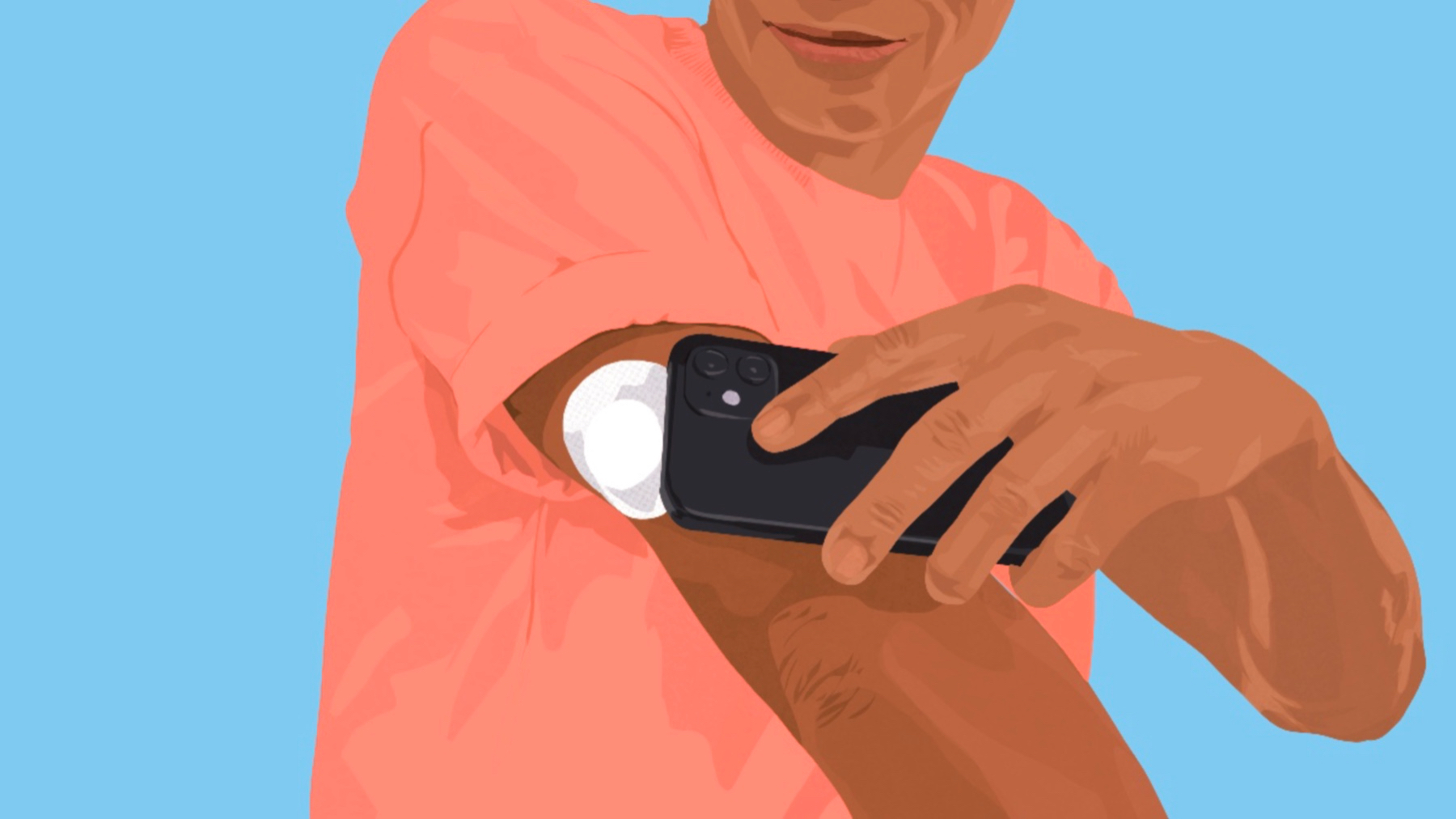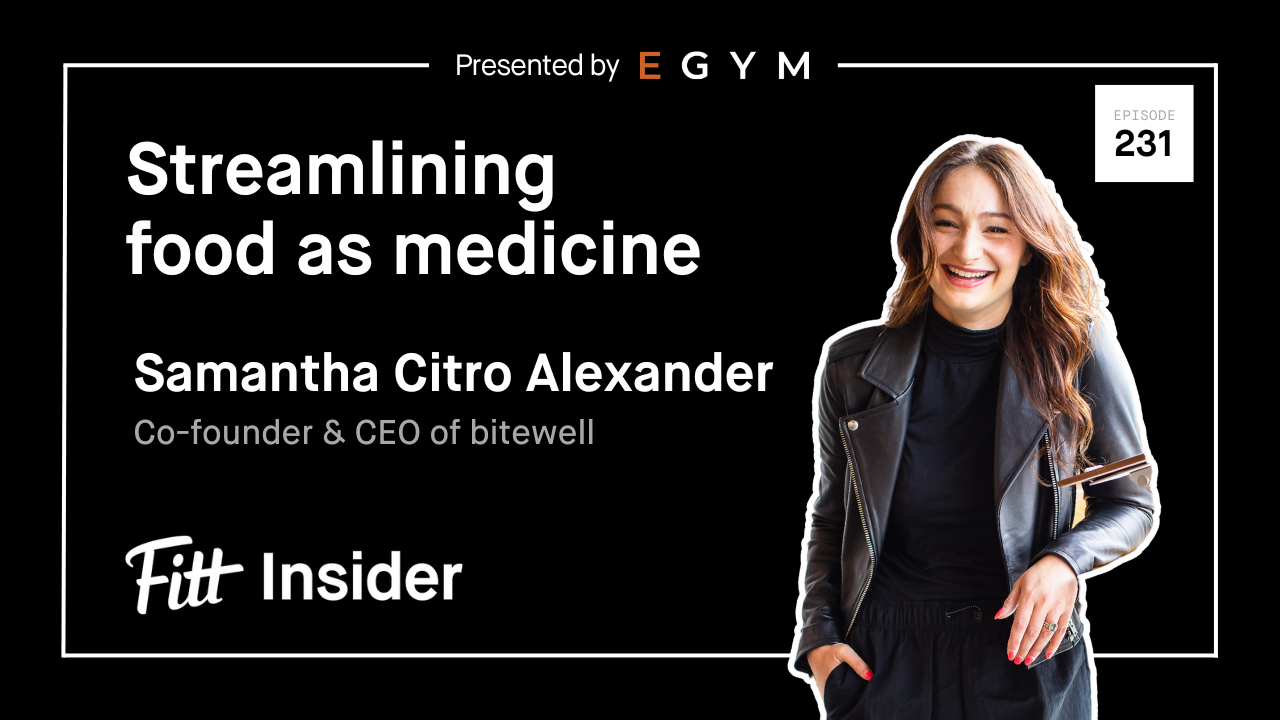Issue No. 278: Off-Script


The future of proactive, personalized care has arrived.
Blood sugar might be the next big wellness metric.
Measuring Up
For diabetics, continuous glucose monitors (CGMs) are a lifesaver.
Armed with real-time insights, patients can trace links between behavior and blood sugar, adjusting habits to keep spikes in check.
But, as we gain a greater understanding of metabolic health, glucose tracking for general well-being is gaining steam.
Spiking Interest
Keeping the body in balance, glucose sensitivity is being explored for weight loss, longevity, sleep, mental health, cancer care, athletics, and more.
Blood feud. Some experts say CGMs should be reserved for diabetics, citing limited research on healthy populations. Among their concerns, obsessing over glucose swings could lead to nutritional gaps or increased stress.
Others, including longevity scientist Peter Attia, are cautiously optimistic, positioning blood glucose as the next HRV.
But the FDA’s rubber stamp may be the biggest endorsement to date.
All-access. Dexcom, the second-largest CGM manufacturer, received clearance to sell its Stelo sensor over the counter, unlocking access for all.
It’s the first device available without a prescription, but rival Abbott is expected to follow after its DTC service Lingo launched in the UK.
Owning a hardware duopoly, the pair’s consumer push will force software startups to adapt.
State of Play
Next-gen metabolic health is recalibrating.
Dependent on third-party CGMs, margins are small. Overwhelmed by high-touch apps and confusing data, churn is a problem. And after establishing a healthy baseline, some consumers ditch the pricey, invasive sensors altogether.
A red flag, software maker Supersapiens terminated all memberships in March.
Branching out. Attempting to break through, companies are diversifying.
- Levels debuted lab services and launched Habit Loops, a goal-tracking dashboard.
- Ultrahuman, which just raised $35M, added a smart ring and blood testing services.
- January AI introduced an app feature using smartphone cameras to predict spikes.
Lose it. Meanwhile, Veri, Nutrisense, and Signos are all-in on CGMs for weight loss. Pairing with GLP-1s, glucose trackers and other health wearables could become copilots, quantifying progress while providing an off-ramp.
Workaround. Entering new markets, Abbott and Dexcom use APIs to sync with partners like WW, MyFitnessPal, Garmin, and Apple Watch. But, asking users to pay for a CGM plus app fees is a hard sell.
Built-in. Breaking from entrenched manufacturers, Samsung and Apple plan to develop noninvasive glucose sensors, while Swiss startup Spiden and Know Labs use light and radio waves to check levels.
TBD. The imminent showdown between incumbent CGMs and cheaper, low-friction sensors could transform glucose tracking, forcing consolidation and closures.
As the landscape shifts, startups building a software layer for health-seekers must evolve to avoid losing out.
Punchline: Global health—including diabetes—is getting worse, and CGMs can help. But data is not a cure, so continuous improvement rests on their ability to inspire change.
🎙 On the Podcast

bitewell co-founder & CEO Samantha Citro Alexander discusses its digital food “farmacy.”
bitewell combines nutrition education with insurance-subsidized grocery shopping and delivery. Partnering with employers and providers, the company is mainstreaming food as medicine.
We also cover: food vs. nutrition insecurity, and how employers, health plans, policymakers, and startups can transform well-being.
Listen to today’s episode here.
💸 Nutrition bars are still big business
ALOHA raised $68M to scale its sustainable plant-based protein bars, powders, and RTD beverages.
Stacked. As competitive as it is lucrative, the bar market has delivered massive exits in recent years.
KIND sold to candy maker Mars for $5B, RXBAR to Kellogg for $600M, and Clif Bar to Mondelēz for $2.9B. Health Warrior and Quest were acquired by PepsiCo and Simply Good Foods, respectively. And General Mills scooped up Epic.
Next wave. Big Food buyouts open the door to insurgent brands.
- Patrick Schwarzenegger’s MOSH, maker of adaptogenic brain health bars, raised $3M.
- Keto, paleo, and vegan, IQBAR closed a Series B and entered Costco last year.
- Innovating global flavors, Mezcla added $4M for its protein bars in January.
Meanwhile, RXBAR founders Jared Smith and Peter Rahal are back for seconds, with the former investing in chilled oat bar Mooski and the latter announcing the “David” protein bar this month.
Punchline: Consumers are hungry for new snacks. Bar brands can use functional ingredients and purposeful values to stand out, but reaching a tipping point takes strategic backing.
Presented by Lifeforce
💪 Take Control of Your Health
Traditional healthcare doesn’t promote well-being. But, proactive options are hard to come by.
Enter: Lifeforce.
Designed for those who refuse to settle, Lifeforce helps you maintain your personal best for life.
Membership includes regular biomarker testing, functional medicine support, 1:1 health coaching, access to hormones and peptides, and more — all personalized to your biology and goals.
Ready to level up? Measure your baseline with an at-home diagnostics kit.
🧬 DNA-based diagnostics go DTC
Nucleus Genomics is bringing whole-genome sequencing to the masses.
Teaming with life sciences leader Illumina, the biotech startup combines 70K+ genetic tests into one for $399, plus a $39 annual fee.
Decoding health. Putting the genome at the forefront of prevention, Nucleus analyzes biological and behavioral data to provide personalized disease risk scores.
Founder Kian Sadeghi sees the app evolving into a “full-stack precision medicine platform,” integrating DNA, sleep, fitness, labs, and more in a centralized patient-driven UX.
Uncharted. Gaining interest, DTC genetic tests will be an $8.8B market by 2030.
From InsideTracker to 23andMe, there’s no shortage of digital health companies integrating DNA, but most trace 0.1% of the genome. Leveraging Illumina’s tech, Nucleus hopes to deliver a bigger picture for less.
Red flags. Some experts are hesitant to score disease risk. Studies show DTC tests could trigger self-fulfilling prophecies, despite genes playing a small role in most diseases.
Punchline: Seeing genetics as foundational, Nucleus wants to put a genome on every smartphone. If it’s cost-effective, consumers may go for it — but tbd whether it improves outcomes.
📰 News & Notes
- Got news? Publish a press release on Fitt Insider.
- PE firm Arctos closes second pro sports fund at $4.1B.
- Medicare spent $5.7B on GLP-1s in 2022. [Re-read: Ripple Effects]
- Anytime Fitness joins OTF in targeted MENA expansion via Dubai.
- Gold’s Gym readies Long Beach location, plans $15M in club renos.
- Kaiser Permanente, Town Hall Ventures launch senior care spinout.
- Grocer H-E-B adds in-store blood diagnostics to pharmacy services.
- Australian developer GURNER Group plots Melbourne wellness utopia.
- Exos records employee performance gains in four-day workweek pilot.
- Startup Q&A: Algae Cooking Club CEO Kasra Saidi on replacing seed oils.
- Represent, Daring founders collab on RTD electrolyte beverage, Cadence.
- Vi reveals AI’s impact on healthcare, pharma, and wellness in new reports.
- Find a health & fitness career you’re passionate about on Fitt Jobs, or discover highly qualified leads for your open role with Fitt Talent Partners.
💰 Money Moves
- Germany-based EGYM acquired UK fitness aggregator Hussle to expand Wellpass, its corporate wellness platform.
- Food-as-medicine platform Nourish closed a $35M Series A round led by Index Ventures.
More from Fitt Insider: Reinventing Food-as-Med - Hume AI raised $50M for its flagship emotionally intelligent voice interface and will target healthcare and wellness applications.
- Plant-based meal company Daily Harvest secured $11.5M in a mix of debt and equity funding from undisclosed investors.
- Herbal medicine brand Apothékary secured $500K from Solidcore founder Anne Mahlum.
- Pro sports owners Josh Harris and David Blitzer received an undisclosed investment from The Chernin Group for Unrivaled Sports, a new youth sports-focused holding company.
- Storyteller Overland, an outdoor adventure vehicle manufacturer, secured an undisclosed investment from L Catterton.
More from Fitt Insider: The Glamping Boom - CBT-based addiction treatment company Pelago (fka Quit Genius) added $58M in a Series C round.
- Zero-sugar beverage brand Lucky F*ck Energy raised $8M and rebranded to Lucky Energy.
- Virtual mental health provider Brightside Health raised $33M in a Series C round led by S32.
- Canadian healthcare platform Dialogue acquired Koble Care, an app for expecting mothers.
- InStride Health, provider of anxiety and OCD treatment for kids, secured $30M in an oversubscribed Series B round led by General Catalyst.
Today’s newsletter was brought to you by Anthony Vennare, Joe Vennare, Ryan Deer, and Jasmina Breen.